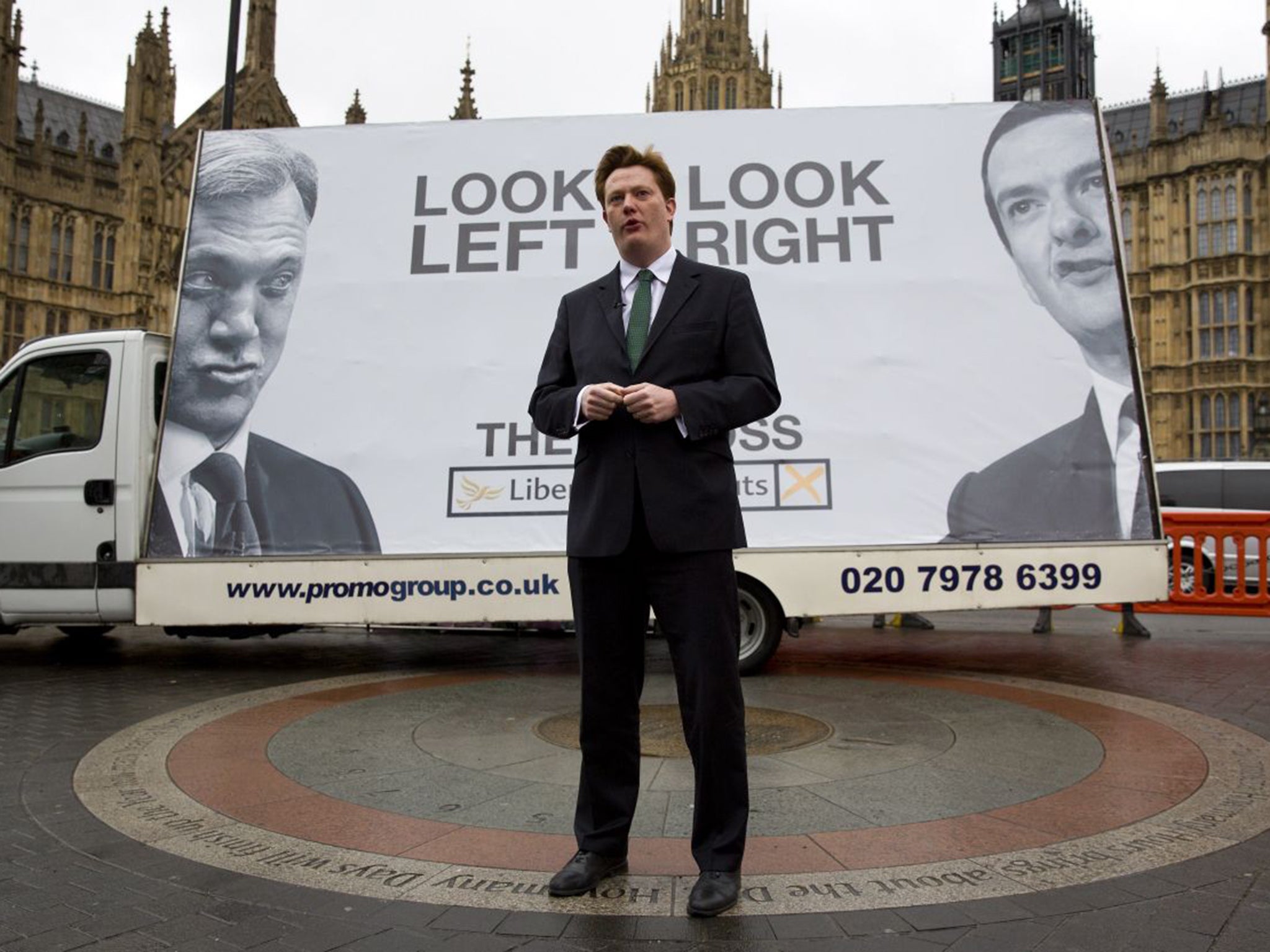Danny Alexander: George Osborne just helped himself to the Lib Dem's best policy ideas
Alexander accuses the Government of of political sleight of hand by attempting to claim that the Budget would leave ordinary families better off

The Treasury deliberately masked the impact of policy changes on Britain’s households by “completely changing” how George Osborne’s budget was officially measured, according to the former chief secretary to the Treasury, Danny Alexander.
In an interview with The Independent on Sunday, Mr Alexander – who worked alongside the Chancellor in the coalition – accused the Government of political sleight of hand by attempting to sell the summer finance statement as a “one nation” budget that would leave ordinary families better off.
The former chief secretary, who lost his Highlands seat in the general election, said that although his former boss got a lot right in the budget, it was “frustrating” to watch the “unjustified” £12bn assault on welfare.
In Graphics: Budget 2015 analysis
Show all 4Despite the Chancellor’s claim that his changes were “fair” and would deliver a “lower welfare, low tax” Britain, the full impact of the budget over the next two years, forecast to be the most difficult period of this government, was simply omitted from the Treasury’s analysis.
Jonathan Portes, director of the National Institute of Economic and Social Research, commenting on the way the Treasury hid key figures, said: “They didn’t do what they have been doing for the past five years. I see no other reason why this was done other than to avoid embarrassment and to conceal the real distributional impact of the budget over the next two years.”
Calculations on the “distributional analysis” for households were changed, with projections offered only from 2017-18. In the previous five years, households had been divided by the Treasury into 10 distinct income groups. Last week just five were included. The changes helped minimise the full impact of the budget.
Mr Alexander said there would have been an internal “fight” with Mr Osborne on many of the financial changes announced, had the coalition still been in existence.
He also accused Mr Osborne of a “straight lift” of many new measures that had been part of coalition discussions and had also been listed in the Liberal Democrats’ manifesto. These included the end to permanent “non-domicile” tax status, the 8 per cent surcharge on banks’ profit tax, and the planned tax raid on dividends.
On the impact of the budget changes on household income, Mr Alexander said: “[The Treasury] changed the basis [of reporting] completely. It no longer looks at the impact of policy on each income group.
Mr Alexander said that watching the budget on television, rather than being on the front bench, was a “bittersweet experience” that had left him frustrated and “surprised” that Mr Osborne appeared to try to occupy the centre ground, rather than the traditional Tory right.
Despite the broad welcome given to the Chancellor’s announcement that he had given everyone in Britain a “pay rise” due to his surprise £9 per hour “national living wage”, it was later revealed by the Institute for Fiscal Studies (IFS) that the budget would leave the poorest 10th of all families in the UK around £800 a year worse off by 2019.
The Treasury, however, offered a far more positive outlook. In a document traditionally expected to throw light on the impact of the budget on household income distribution, it was claimed the richest 20 per cent of households would be soon be paying a higher proportion of taxes.
The Treasury claimed that taxes on the rich would be increased and that half of all spending on public services would be going to the poorest 40 per cent of households.
The Government document explained that its own analysis “takes a different approach from that published by HM Treasury in the last parliament”. It did not say how the budget changes would affect households next year and the year after.
Mr Alexander’s former Treasury advisers told the IoS that the first Tory-only budget in almost 20 years had abandoned the old system that examined the impact of the first two years, which was seen as a “bellwether measurement”. One said: “The next two years will be tough when these changes kick in. So this was an incredible conjuring trick. It masked what was going to happen – and someone had to have taken a decision ... to walk away from the way things had been done since 2010. This was no accidental omission.”
Mr Alexander, who has yet to announce what he intends to do next, said it had been a mistake to label the budget a welfare-to-wage exercise. He said a “far higher minimum wage” would have been necessary to sustain that claim.
Parts of the budget, he said, were “smart” and “will help the country”, but from the perspective of a spectator “this was frustrating to watch”.
Subscribe to Independent Premium to bookmark this article
Want to bookmark your favourite articles and stories to read or reference later? Start your Independent Premium subscription today.

Join our commenting forum
Join thought-provoking conversations, follow other Independent readers and see their replies